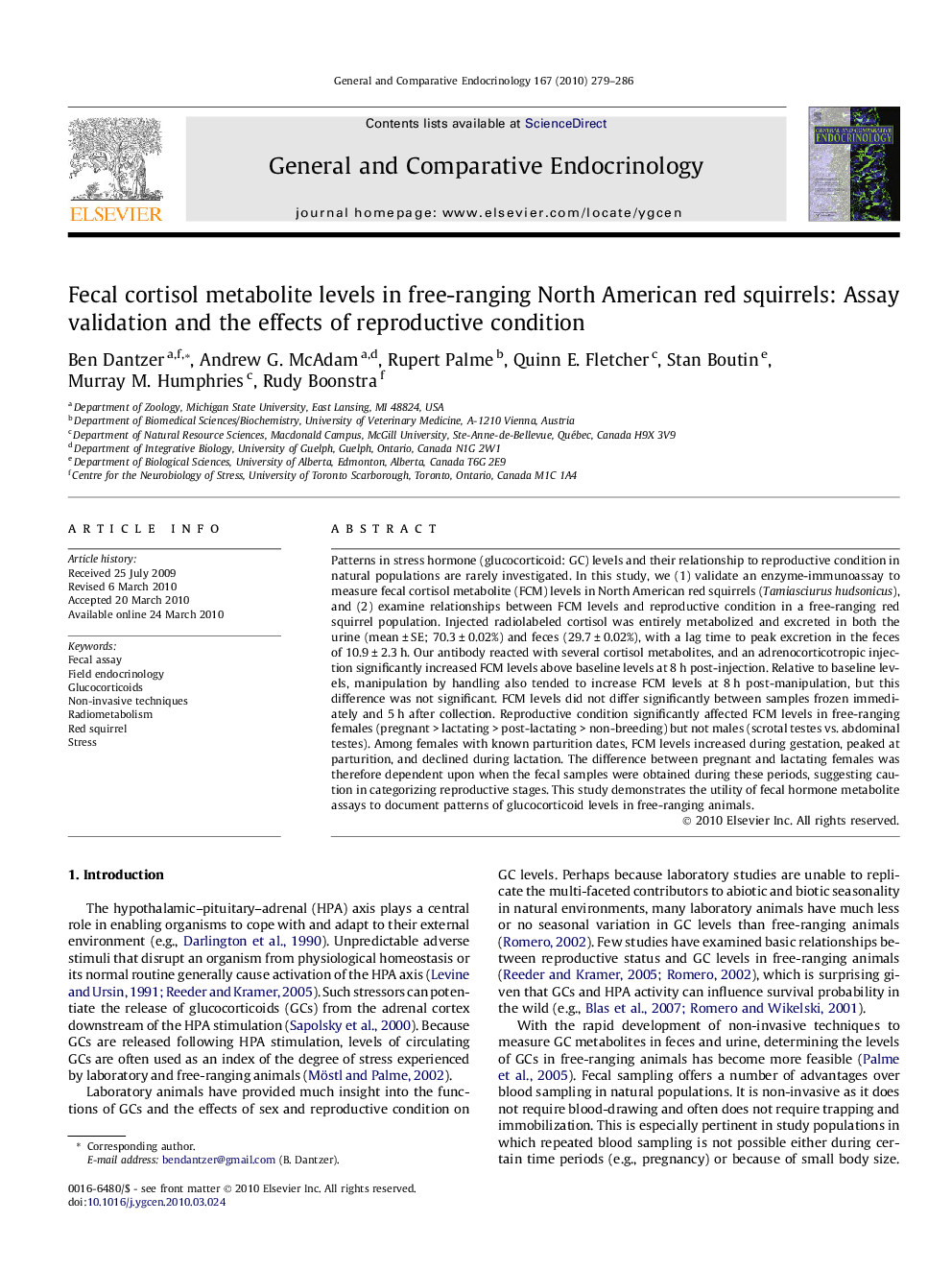| Article ID | Journal | Published Year | Pages | File Type |
|---|---|---|---|---|
| 2800999 | General and Comparative Endocrinology | 2010 | 8 Pages |
Patterns in stress hormone (glucocorticoid: GC) levels and their relationship to reproductive condition in natural populations are rarely investigated. In this study, we (1) validate an enzyme-immunoassay to measure fecal cortisol metabolite (FCM) levels in North American red squirrels (Tamiasciurus hudsonicus), and (2) examine relationships between FCM levels and reproductive condition in a free-ranging red squirrel population. Injected radiolabeled cortisol was entirely metabolized and excreted in both the urine (mean ± SE; 70.3 ± 0.02%) and feces (29.7 ± 0.02%), with a lag time to peak excretion in the feces of 10.9 ± 2.3 h. Our antibody reacted with several cortisol metabolites, and an adrenocorticotropic injection significantly increased FCM levels above baseline levels at 8 h post-injection. Relative to baseline levels, manipulation by handling also tended to increase FCM levels at 8 h post-manipulation, but this difference was not significant. FCM levels did not differ significantly between samples frozen immediately and 5 h after collection. Reproductive condition significantly affected FCM levels in free-ranging females (pregnant > lactating > post-lactating > non-breeding) but not males (scrotal testes vs. abdominal testes). Among females with known parturition dates, FCM levels increased during gestation, peaked at parturition, and declined during lactation. The difference between pregnant and lactating females was therefore dependent upon when the fecal samples were obtained during these periods, suggesting caution in categorizing reproductive stages. This study demonstrates the utility of fecal hormone metabolite assays to document patterns of glucocorticoid levels in free-ranging animals.
